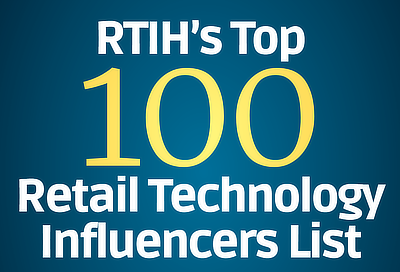Research
- May 20, 2025
Uncharted Territory: Global Economic Outlook 2025-2027 - 1H 2025
- May 12, 2025
The Real Retail Reality: Stores Thrive Among Uncertainty
- May 05, 2025
State of Grocery Europe 2025
Grocery sales grew by 2.4% in Europe, slightly above the food price inflation rate of 2.3%. Discounters and private labels continued to gain market share, although at a much slower pace than in 2023, largely in line with a longer-term trend observed in previous years. - From McKinsey & Company
- April 22, 2025
Tariffs could spell trouble for the resilient consumer
Consumers are navigating a paradox: they feel less flexible and less able to impact the macroeconomic challenges they are facing but simultaneously are vocalizing less concern about persisting challenges, particularly financially. - From Kearney
- April 14, 2025
The Mobile Economy 2025
- April 07, 2025
Growing Crisis of Retail Returns
- April 01, 2025
US Tariffs: What's the impact on global trade and the economy?
- March 10, 2025
USA Q4 and 2024 Retail Violent Fatalities Report
483 retail fatalities in 2024, down 23% from 2023. Customers make up 51% and associates 25% of all fatalities. Can you guess the most violent retail segment? - From The D&D Daily
- February 10, 2025
UK Retail Crime Survey 2025
- February 03, 2025
Are Retail CEO's Pessimistic? Cautiously Optimistic? Or Just Realistic?
- January 28, 2025
IMF Global Economic Forecasts: Growth Divergent and Uncertain
- January 20, 2025
What matters to today’s consumer 2025
One significant finding is that generative AI (Gen AI) is increasingly influencing consumer behavior and transforming shopping experiences. A notable 68% of consumers are prepared to act on its recommendations, and over half (58%) prefer product recommendations from Gen AI tools over traditional search engines. - From Capgemini
- January 06, 2025
The Impact of Retail Theft & Violence 2024 in USA Retail
- December 02, 2024
European Non-Grocery Retail: Transition and Transformation
After an unpredictable several years, non-grocery retailers in Europe are seeking to uncover pockets of growth. To succeed, they will need to navigate differences across markets and retail categories. - From McKinsey
- November 18, 2024
Unlocking Shopper Reactions to Secured Products
Page 1 of 35
















